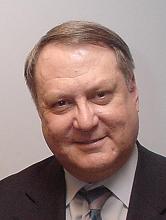By George Francis Kane
 Writing the decision in the 1968 Epperson v. Arkansas case, Justice Abe Fortas noted that “(t)he First Amendment mandates governmental neutrality between religion and religion, and between religion and nonreligion.” Justice David Sutter referred to this principle of neutrality as the bedrock concept of the Establishment Clause, and it has been cited repeatedly in Supreme Court decisions for over four decades. Justice Antonin Scalia, however, in a speech at Colorado Christian University, said that he considers the interpretation that the Establishment Clause forbids the government to favor religion over non-religion to be “a lie.”
Writing the decision in the 1968 Epperson v. Arkansas case, Justice Abe Fortas noted that “(t)he First Amendment mandates governmental neutrality between religion and religion, and between religion and nonreligion.” Justice David Sutter referred to this principle of neutrality as the bedrock concept of the Establishment Clause, and it has been cited repeatedly in Supreme Court decisions for over four decades. Justice Antonin Scalia, however, in a speech at Colorado Christian University, said that he considers the interpretation that the Establishment Clause forbids the government to favor religion over non-religion to be “a lie.”
Scalia, a conservative Catholic Reagan appointee, faults liberal justices for the view of an evolving Constitution that changes in its application as society changes. Scalia averred that only an “idiot” could believe in a “living Constitution.” He claims to be an “originalist,” who looks for the meaning of provisions of the Constitution in the intent of its authors which he finds in the practices of government at the time. Scalia notes with disdain that justices of the “evolving Constitution” school spend sleepless nights worrying about finding the right interpretation of Constitutional clauses, while he sleeps soundly every night because, when he looks back in history, he finds the questions already decided. He called the interpretation that the Establishment Clause protects secular government “utterly absurd,” arguing that the Constitution only obligates government to protect freedom of religion – not freedom from it.
Because religious belief, or non-belief, is such an important part of every person's life, freedom of religion affects every individual. Religious institutions that use government power in support of themselves and force their views on persons of other faiths, or of no faith, undermine all our civil rights. Moreover, state support of an established religion tends to make the clergy unresponsive to their own people, and leads to corruption within religion itself. Erecting the "wall of separation between church and state," therefore, is absolutely essential in a free society. -- Thomas Jefferson, to the Virginia Baptists (1808)
In another public appearance on the same day at the University of Colorado Boulder Law School, Scalia compared his efforts to restore constitutional originalism to the epic quest of "Lord of the Rings" hero Frodo Baggins.
“It’s a long, uphill fight to get back to original orthodoxy. We have two originalists on the Supreme Court,” Scalia said, referring to Justice Clarence Thomas and himself. “But I feel like Frodo … We’ll get clobbered in the end, but it’s worth it.”
Scalia sees the Supreme Court as a Fellowship that can destroy the Ring of church/state separation in the forge of Mt. Doom. There is as much fantasy in his self-image as in his Establishment Clause theory.

